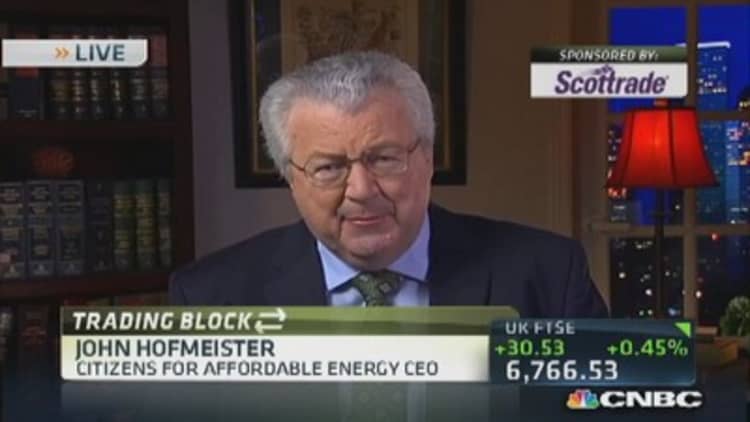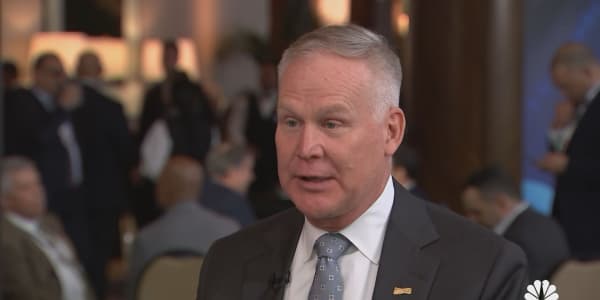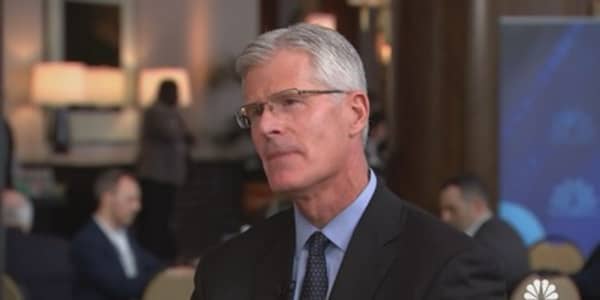U.S. energy regulators lay a lighter hand on the natural gas industry than they do on projects like the Keystone pipeline. There's little agreement on why that's the case.
On one hand, the United States has warmed to shale production, with the government slowly showing more favor toward the principle of shipping part of its vast natural gas stocks abroad. Earlier this month, the Department of Energy quietly approved a Louisiana terminal that will export liquefied natural gas (LNG), the fourth facility to receive approval in the last year.
On the other, TransCanada's Keystone XL pipeline remains mired in a thicket of feuding interests. Even as the project recently got a pivotal environmental endorsement from the State Department, the topic threatens to overshadow the "Three Amigos" summit that kicked off this week between Canada, the U.S. and Mexico.
Shale gas emits less carbon pollution than traditional fossil fuels—though there's even emerging disagreement about that assertion—which is why many environmental groups view the energy source more favorably than they do comparatively dirtier fuels like oil and coal.
In 2013, energy sector emissions were at their lowest levels since 1994, in part because of the substitution of natural gas for other fossil fuels such as coal, according to the Center for Climate and Energy Solutions, a think tank. Total U.S. emissions are not expected to reach 2005 levels again until sometime after 2040.
While the pace of the DOE's "case by case" approval of LNG export terminals has been too slow for some, groups that normally advocate for carbon reduction—such as the Brookings Institution—openly embrace natgas drilling and exports. Some experts see natural gas as a linchpin to reducing carbon emissions around the world.
(Read more: Louisiana terminal gets OK to export natgas)
Meanwhile, the Keystone pipeline will ship heavy crude, one of the biggest of carbon dioxide emitters. That has anti-climate change activists up in arms about the potential environmental impact.
"It's not just allowing nat gas exports and preventing oil exports," said one industry participant, who asked not to be named. "With the Keystone, [the Obama administration] is looking at overall greenhouse gas issues. Exporting nat gas will reduce greenhouse gasses all over the world," the person added.

Charles Ebinger, the director of Brookings' Energy Security Initiative, doesn't see anything fundamentally disjointed about the administration's embrace of natural gas and the stalled pipeline. Ebinger, who also supports exporting U.S. crude, said there are different regulatory processes governing the two.
Still, he thinks the administration's calculus is as much political as practical. Environmental groups, which last month released an open letter blasting President Barack Obama's energy policy, have hamstrung Keystone's approval.
"Despite all the reports [supportive of the Keystone XL] I don't think he's going to support it and I don't think he's going to do anything" ahead of November's midterm elections, Ebinger said.
(Read more: Keystone pipeline politics 'nuts': Ex-oil chief)
Keystone is not alone in the U.S. queue for regulatory approval. Enbridge, Canada's largest pipeline operator, is also in the midst of an extended waiting period for a plan to expand capacity on its 3,100 mile line—the world's longest—by an additional 120,000 barrels per day.
The Keystone XL "is nothing but politics," said Chip Knappenberger, assistant director for the Center of the Study of Science at the Cato Institute, a conservative group that opposes government regulation generally. He said Enbridge's original pipeline proposal "was a very similar proposal, but it didn't catch anyone's attention."
Unlike natural gas, which is part and parcel of the Obama administration's climate action policy, the Keystone "has a really big environmental line in the sand," Knappenberger said.
"The environmental dangers are minimal compared to trains and trucks and other ways" to ship oil, Knappenberger said. "If the line in the sand wasn't drawn, the pipeline would have flown through."
—By CNBC's Javier E. David. Follow him on Twitter @TeflonGeek.





